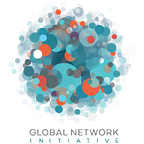How Social Media Platforms Can Better Protect Sensitive Speech, by Miraj Ahmed Chowdhury
Twitter: @mirajsays
GNI members work together to leverage each other’s unique expertise and perspectives to advance and protect freedom of expression and privacy in the ICT sector around the world. The six GNI-Internews Fellows have each designed a research project that draws on the unique affordances of this multistakeholder model of collaboration. By pursuing this research throughout their term, fellows apply their GNI participation directly to issues of importance to them.
Golam Mortuza, editor of the weekly magazine “Shaptahik” and a prominent Bangladeshi journalist has seen his Facebook profile “blocked” three times in the past two years. His account was first blocked ahead of the national election in 2018. After repeated complaints and tiresome exchanges of emails, he regained access to his account, only to get suspended again in May 2019. Since then, all his attempts to recover that account have failed.
Mortuza opened a new account to share views and gather news but that too was blocked within months. The editor wrote a column in the Daily Manabzamin with frustration, asking if he had no right to use Facebook or express views on that platform.
The daily New Age reported names of at least seven journalists, bloggers, and political activists, including their editor, Nurul Kabir, whose profiles were either blocked or removed in recent months. Some of them recovered their accounts, and some did not. The report noted that many of the online activists critical of the government’s politics now fear having their Facebook accounts blocked.
Is this merely a coincidence, or is something else going on? There are at least two scenarios to consider: first, accounts are perhaps being removed in response to government requests; and second, politically backed trolls may be reporting accounts that express dissent for violating Facebook’s terms of service. Facebook is the most widely used social media platform in Bangladesh, with 85% share in the total social media user pie — so preventing critical voices from expressing themselves here deeply impacts their reach.
However, data from Facebook’s transparency reports, currently available through the end of 2019, show that hardly any profiles have been restricted due to government requests. At the same time, the National Tele-Communication Monitoring Centre of Bangladesh has said they have convinced Facebook authorities to block 1,332 fake accounts, groups and pages, 71 of which were propaganda-related.
This suggests that formal modes of government requests are not being used in these cases. According to Freedom House, “Pro-government actors [in Bangladesh] also employ informal means of removing online content. Journalists critical of the government have had their Facebook accounts restricted. Some analysts suspect these restrictions were carried out as a result of pro-government actors misusing Facebook’s mechanism to report content that violates the platform’s community standards.”
The existence of troll armies in Bangladesh, backed by political parties and extremist groups, are open secrets. Trolls regularly report Facebook profiles to suppress individuals for their political or religious views. Sufi Ibne Maruf, a ruling party politician, claimed in a DW Bangla article that a number of their supporters have lost control of their Facebook profiles as the opposition party activists reported the accounts. Ajanta Dev Roy, a progressive blogger, shared her experience of getting her profile banned three times as religious extremists reported it as fake. She said many online activists are now in fear of losing their profiles.
Currently, if a person whose account has been lost objects to Facebook’s decision, they can appeal to Facebook’s community moderation team. But after that, there’s no way to further dispute the decision. The company has also launched an independent oversight board that will have final say on many matters. But the question still remains of whether the existing process can address the growing number of government requests and targeted reporting by trolls that effectively restrict dissent.
Bangladesh is among the 15 countries which together represent around 40% of total Facebook users. But 12 of these 15 countries are ranked at the bottom of the World Press Freedom Index. Indeed, activists from India, another South Asian nation with one of the highest numbers of Facebook users, have experienced similar restrictions on their accounts and content. A Scroll article said, “For the past month, Facebook has been criticized by social media users in India for purportedly blocking and putting under scrutiny accounts and pages that shared posts critical of the government, the ruling Bharatiya Janata Party and right-wing groups.”
The suppression of journalists and activists on social media is still not well-understood in Bangladesh. Primary evidence from nearby countries suggests the challenges faced here are similar to those in India or Africa’s Somalia. If this issue is left unaddressed, Bangladesh may become the next “Vietnam” of Asia. With the rise of populism, fall of democratic values, and shrinking civic space, requests from governments to restrict content and coordinated harassment campaigns from political actors will only continue to rise in these countries. Therefore, social media platforms must actively take steps to safeguard this freedom of expression by developing new processes and strategies.
Through this fellowship, Management and Resources Development Initiative (MRDI) will document cases of account removal to understand different types of manipulation as well as the role of different actors that suppress, discredit, and drown-out dissent, as outlined in an approach used by the Oxford Internet Institute. We will also study how companies should best handle these reports by working more effectively with our local civil society. The study will use surveys, content analysis of news articles, interviews, and policy reviews to find answers to these questions.
